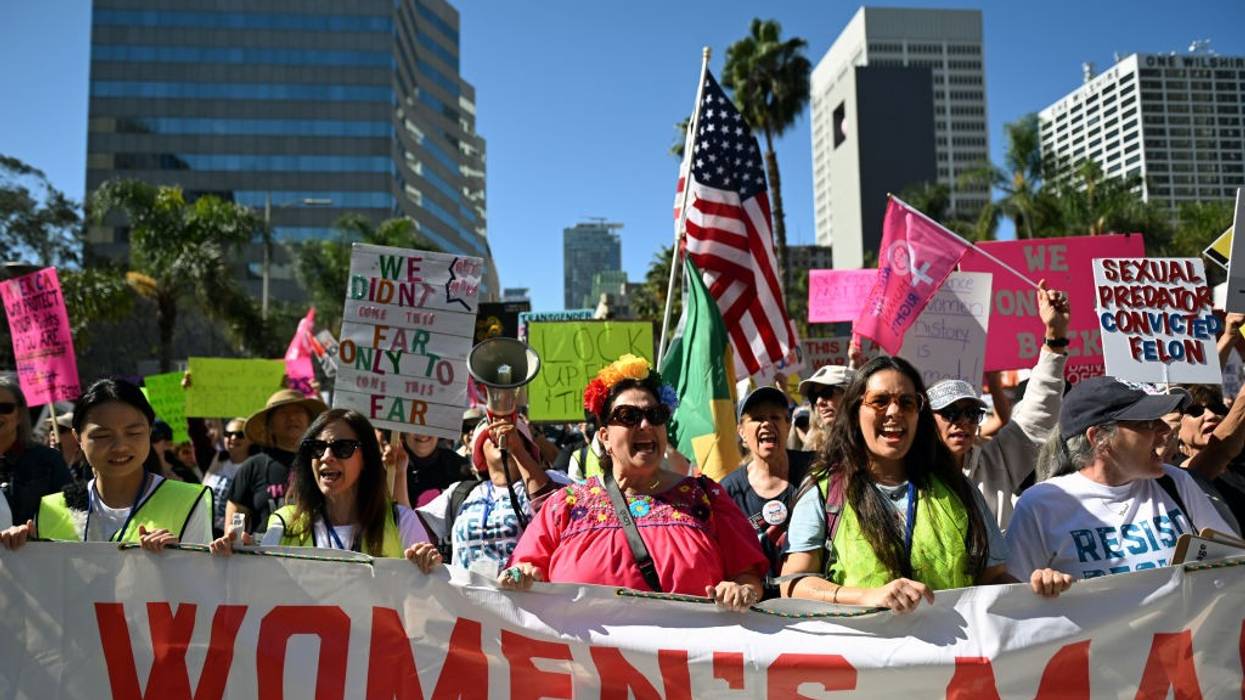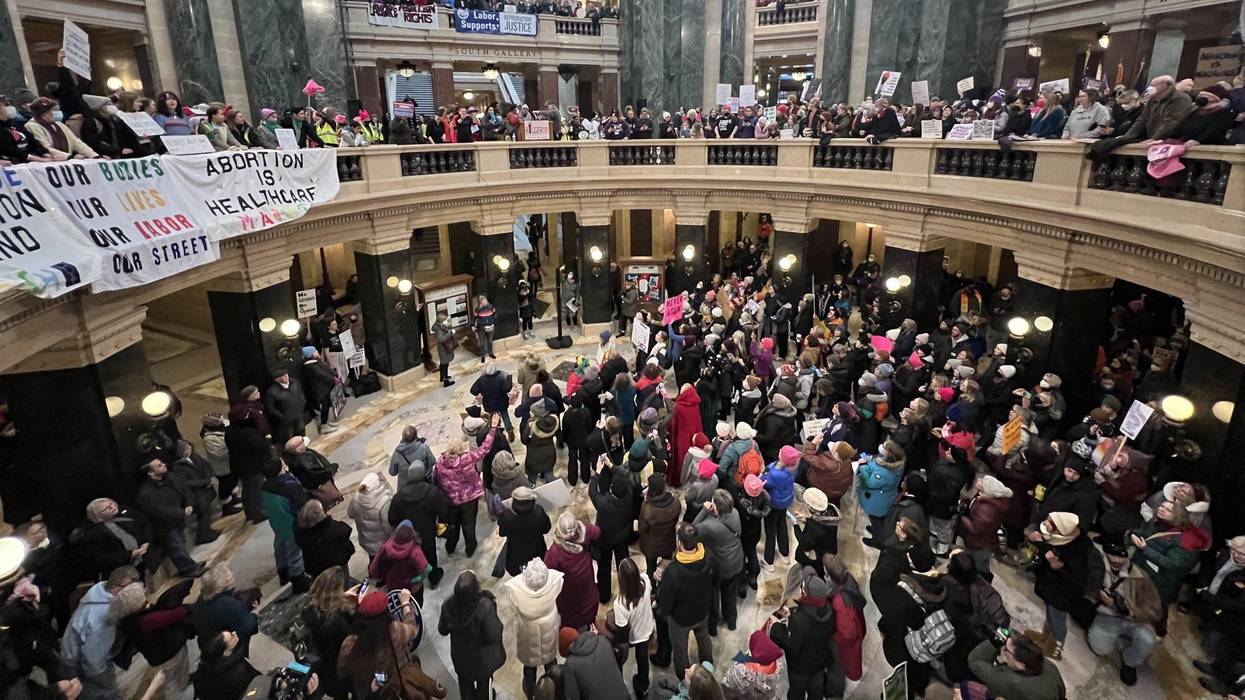'Unite and Resist': Women's Day Rallies Against Trump Held From Coast to Coast
"This is our day to stand together, make our voices heard, and show the world that we are not backing down," said Women's March.
Women and their allies took to the streets of cities and towns from coast to coast Saturday for a "Unite and Resist" national day of action against the Trump administrationcoordinated by Women's March.
"Since taking office, the Trump administration has unleashed a war against women driven by the Project 2025 playbook, which is why, more than ever, we must continue to resist, persist, and demand change," Women's March said, referring to the Heritage Foundation-led blueprint for a far-right overhaul of the federal government that, according to the Guttmacher Institute, "seeks to obliterate sexual and reproductive health and rights."
"This is our day to stand together, make our voices heard, and show the world that we are not backing down," Women's March added. "Women's rights are under attack, but we refuse to go backward."
Women's March executive director Rachel O'Leary Carmona asserted that "the broligarchy that owns Trump is working to 'flood the zone' with hateful executive actions and rhetoric, trying to overwhelm us into submission."
"But we refuse to lose focus," she vowed. "We refuse to stand by."
In San Francisco, where more than 500 people rallied, 17-year-old San Ramon, California high school student Saya Kubo gave the San Francisco Chronicle reasons why she was marching.
"Abortion, Elon Musk, educational rights and trans rights, LGBTQ rights, climate change—all of these things, I am standing up for what I believe in," she said.
Her mother, 51-year-old Aliso Kubo, said that "we came out here specifically to support my daughter and women's rights."
Thousands rallied down the coast in Los Angeles, where protester Pamela Baez told Fox 11 that she was there to "support equality."
"I think I mostly want people to be aware that women are people. They have rights," Baez said. "We just want to show everybody that we care about them. People deserve healthcare. Women deserve rights."
Thousands of people rallied on Boston Common on a chilly but sunny Saturday.
"We are the ones who are going to stand up," participant Ashley Barys told WCVB. "There is a magic when women come together. We can really make change happen."
Boston protester Celeste Royce said that "it was really important for me to be here today, to stand up for human rights, for women's rights, to protect bodily autonomy, to just make myself and my presence known."
Sierra Night Tide told WLOS that seeing as how Asheville, North Carolina had no event scheduled for Saturday, she "decided to step up and create one."
At least hundreds turned out near Pack Square Park for the rally:
Today at the Women's March in Asheville, NC pic.twitter.com/BPAIZORSUd
— Senior Fellow Antifa 101st Chairborne Division (@jrh0) March 9, 2025
"As a woman who has faced toxic corporate environments, living with a physical disability, experienced homelessness, and felt the impact of Hurricane Helene, I know firsthand the urgent need for collective action," Night Tide said. "This event is about standing up for all marginalized communities and ensuring our voices are heard."
Michelle Barth, a rally organizer in Eugene, Oregon, told The Register Guard that "we need to fight and stop the outlandish discrimination in all sectors of government and restore the rights of the people."
"We need to protect women's rights. It's our bodies and our choice," Barth added. "Our bodies should not be regulated because there are no regulations for men's bodies. Women are powerful, they are strong, they're intelligent, they're passionate, they are angry, and we're ready to stand up against injustice."
In Grand Junction, Colorado, co-organizer Mallory Martin hailed the diverse group of women and allies in attendance.
"In times when things are so divisive, it can feel very lonely and isolating, and so the community that builds around movements like this has been so welcoming and so beautiful that it's heartwarming to see," Martin told KKCO.
In Portland, Oregon, protester Cait Lotspeich turned out in a "Bring On the Matriarchy" T-shirt.
"I'm here because I support women's rights," Lotspeich
said in an interview with KATU. "We have a right to speak our minds and we have a right to stand up for what is true and what is right, and you can see that women are powerful, and we are here to exert that power."
The United States was one of dozens of nations that saw International Women's Day protests on Saturday. In Germany, video footage emerged of police brutalizing women-led pro-Palestine protesters in Berlin.



